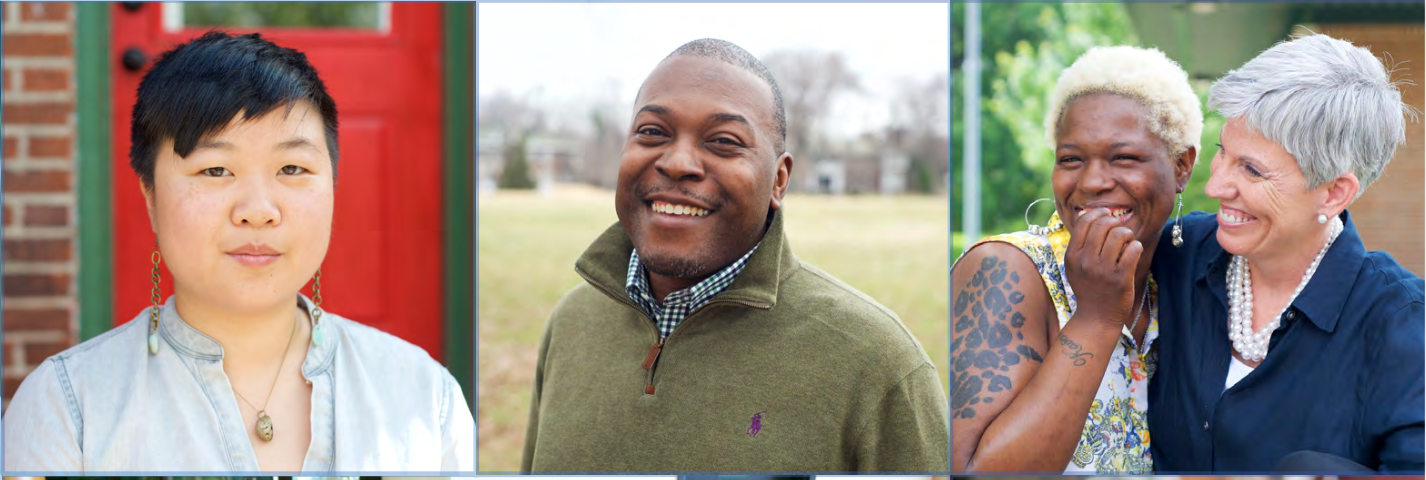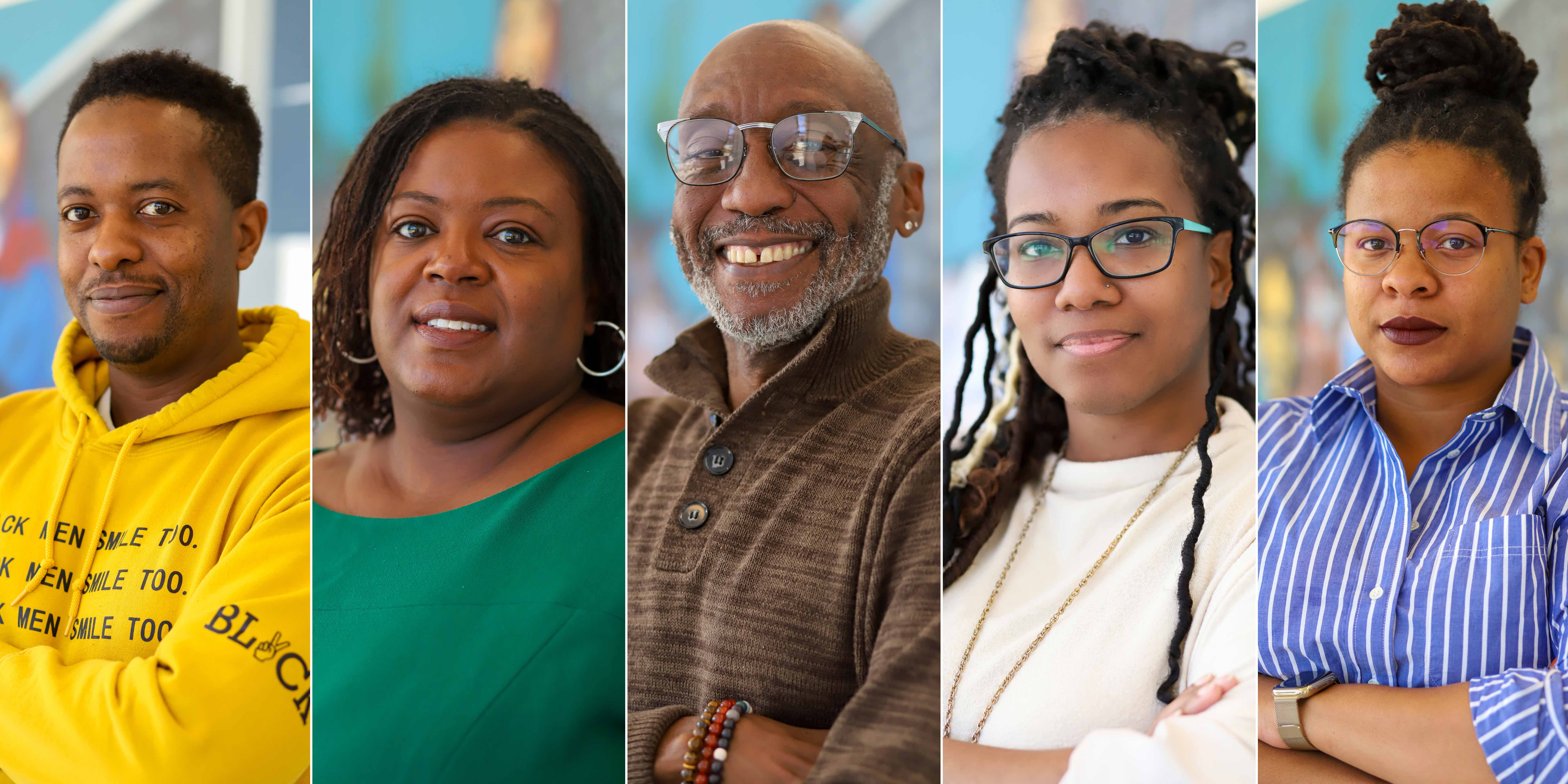Funding Priorities & How To Apply — Racial Healing + Justice Fund
How to Apply | Funding Priorities | Type of Activities
How to Apply
Community initiatives that align with the funding priorities and activities that are Black- or Brown-led are invited to apply. However, the Racial Healing + Justice Fund Grant Cycle 3 has now closed. Cycle 3 grantees will be announced soon.
Please refer to the Racial Healing + Justice Fund Cycle 3 Glossary to learn more about the terms referenced in the application.
You can email rhjf@forwardthroughferguson.org if you have any questions.
Please take some time to read the funding priorities below, and watch Community Info Session for the most recent grant cycle here to learn more about the application process.
What are the Funding Priorities?
The Racial Healing + Justice Fund target its investment into initiatives that:(1) heal individual and community trauma, (2) engage a broader range of residents in systems change work, (3) prepare leaders of color to organize for healing justice, (4) build local capacity to nurture, support, and cultivate healing assets and (5) align resources for long-term sustainability.
The Racial Healing + Justice Fund funding priorities were chosen based on the intersection of the community engagement and design activities during the summer of 2020 and the central purpose of the fund to invest in and build the capacity for healing from racial trauma. They have been identified by residents, community organizers, and healing practitioners and solidified by the Community Governance Board.
These funding priorities are a call to action for bold ideas and initiatives of Black and Brown St. Louisans (St. Louis region and surrounding counties) directly impacted by racialized oppression who want to take on the commitment to change the systemic conditions that reinforce systemic racial inequities and endanger lives and to heal the core of our community.
Heal the Core
- Solicit, curate, and amplify truth narratives on experiences with racial oppression;
- Support artistic/creative expression and engage artists in creating a shared vision for a healed future;
- Expand opportunities for community members to express grief, connect to sacred cultural assets, and seek/offer forgiveness through healing circles and other restorative practices;
- Provide platforms for people to build and exercise their individual power and resilience;
- Invest directly in grassroots organizations that promote intragroup and intergroup healing and foster community resilience;
- Connect individuals to healing justice as a mode of resilience and recovery from trauma
- Invest in community-wide, neighborhood level, and small group platforms that offer residents opportunities for deepening relationships through restoration, reverence, respect, and trust-building; or
- Support the spiritual and emotional health of organizers and social justice advocates by connecting them to one another and offering opportunities for their own healing and self-care.
Change the Conditions
- Invest in local leaders of color and forge a pipeline of future leadership from impacted communities;
- Build organizing capacity and invest in the professional development of organizers and activists;
- Center grassroots knowledge and advocacy to transform systems and structures;
- Build the capacity of individuals to step into their power and actively facilitate organized engagement;
- Prepare and invite more community residents to participate directly in leading and facilitating community mobilization, organizing, civic engagement, and system change;
- Broaden resident engagement to operationalize policymaker accountability structures and practices;
- Foster connections between new/young change agents and seasoned/experienced change agents;
- Connect the priorities and strategies of high capacity organizations with grassroots entities and activists; or
- Align philanthropic funding and other local investments in strategically centered priorities that reflect a shared vision of racial equity and healing-centered justice
Community Identified Priorities:
Read the results of the summer 2020 engagement and design process in the full report here.
- Youth at the Center – Opportunities for children and young people to process trauma, build power, and grow to be engaged members of the community.
- The Sustainability of the Community – Capacity building within communities that drive holistic growth while dismantling systems of racial oppression, and which connect the people and the causes that promote continued growth, development, and wellbeing.
- Storytelling and Sharing the Work – Cataloguing, widely distributing, and awareness building on racial healing a justice work to facilitate the engagement, leadership, and activation of residents most impacted by systemic racism. As well as teaching community members how to share their personal stories to activate others for systemic change.
- Education and Training – Knowledge-sharing and -building opportunities for community members most impacted by systemic racism to access information on racial healing, power-building, and community advocacy as well as liberation practices and supports.
- Supporting Healers and Organizers – Infrastructure and initiatives that support Structural, emotional wellbeing, and capacity-building support for racial healing practitioners and community organizers.
- Direct Impact– Expansion of impactful existing racial healing services as well or the development of innovative new healing justice programs or services.
What Type of Activities will be Funded?
Within the above funding priorities, the design process surfaced examples of activities.
- Storytelling & Creative Art
- Activating the creative arts to dismantle systemic racism, build awareness, promote racial healing, and move people to action.
- Growth & Sustainability of Community Healers and Organizers
- Fostering collaboration and partnership
- Professional development, continuing education, and skill-building
- Developing leadership pipelines
- Models for Collective Healing
- Supporting mental and emotional health services for people of color, as well as services specifically targeted to the Black community
- Creating and piloting models for holistic community health and wellbeing
- Centering intentional healing initiatives
- Intersectional Healing and Organizing Initiatives for People of Color
- Healing and organizing focused on:
- Maternal Health
- Elderly Services and Care
- Parents and Parent Advocacy
- Children and Young People
- Healing and organizing focused on:
- Community Building
- Focusing on community healing and the creation of models for collective healing
- Creating intentional community-based spaces for healing justice
- Supporting education initiatives for the community
- Supporting education & professional development (capacity building) of grantees
- Growing and implementing models for effective community decision-making or participatory budget.
- Supporting crisis program infrastructure and housing supports
- Democracy and Building Political Power
- Implementing leadership development initiatives for residents to participate in civic institutions (government, elected office, schools, etc.)
- Activating residents of color to exercise their political power towards systemic change.
- Addressing Racialized Trauma
- Addressing systemic oppression within racial healing or organizing spaces and sectors.
- Creating and upholding methods, models, and frameworks for accountability to communities of color.
- Continuing support of activists and advocates for justice.
- Developing and delivering antiracism and racial justice training, workshops, and interventions that heal internalized racial oppression.

Take Action
FTF Co-Chairs and Community Partners Call for Swift Policy Action
Residents Call for Policy Change, Regional Leaders Must Rise to the Challenge Forward Through Ferguson co-chairs, Rebeccah Bennett and Zachary Boyers, and 30 community partners call on policy and decision makers to deliver swift action on Ferguson Commission Calls to Action. Read the full statement on Medium, or download a pdf here. “Unfortunately, we’ve been…
A Path To Racial Equity Worksheet
Racial Equity is a state in which race no longer predicts outcomes. Achieving Racial Equity is the mission of Forward Through Ferguson. But the 189 calls to action in the Ferguson Commission Report are a reminder that there is no one-step, straight-line path from our current state—where racial disparities exist in almost every set of…
Opportunity for a New Approach to Public Safety in St. Louis
An open letter to Mayor Lyda Krewson from Rebeccah Bennett and Zachary Boyers, Co-chairs of Forward Through Ferguson, on the public safety opportunity in front of our region. Click here to download a pdf of the open letter. Mayor Krewson, The retirement of Police Chief Sam Dotson represents a new day for public safety in St. Louis….


#FwdThruFerguson